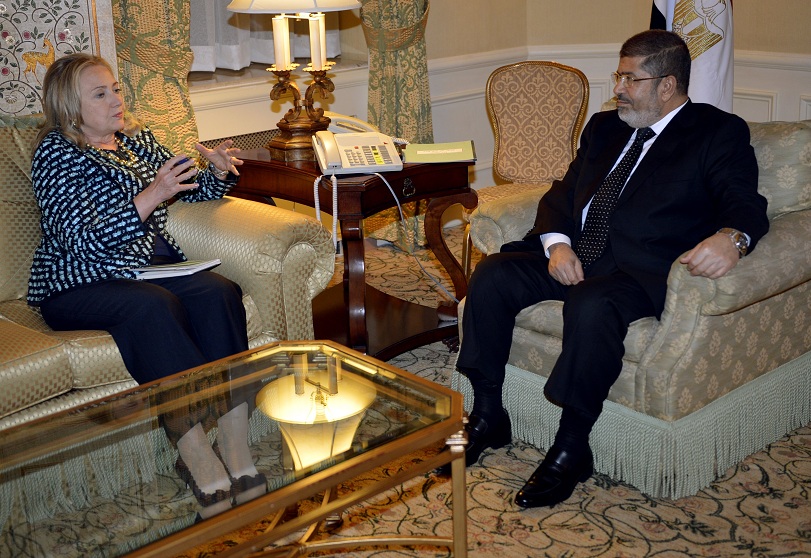CAIRO: The International Monetary Fund (IMF) has implemented a plan to inject $283 billion into international markets, with Egypt receiving $1.2 billion to be added to its international reserves balance.
IMF’s plan, launched Aug. 28, was conceived by its Monetary and Financial Committee and is intended to help increase liquidity in international markets.
The funds were disbursed through special drawing rights (SDR) units, an IMF international reserve asset created to supplement member countries’ official reserves.
The amount received by each country was calculated in proportion to their existing quotas in the fund, which are determined by a country’s relative size in the global economy.
Egypt’s net international reserves (NIR) were boosted by $1.1 billion in the first phase. An additional US $98 million will be injected during the second phase of special allocation beginning Sept. 9.
Worldwide liquidity levels plummeted after the onset of the global recession in 2008.
“The whole idea is that SDR’s are going to be increased through this plan, which will then increase worldwide liquidity, Reham ElDesoki, senior economist at Beltone Financial told Daily News Egypt.
Nearly $100 billion of the allotted money will go to emerging markets and developing countries, and low-income countries will receive $18 billion.
“The SDR allocation is a key part of the Fund’s response to the global crisis, offering significant support to its members in these difficult times, said IMF Managing Director Dominique Strauss-Kahn.
The allocation is a prime example of a cooperative monetary response to the global financial crisis, Strauss-Kahn continued.
The allocated SDR’s will act as a low cost liquidity buffer for low-income countries and emerging markets, reducing the need for excessive self-insurance.
According to a statement on the IMF website, members’ holdings of the newly allocated SDR’s will count toward their reserve assets. Members can choose to hold or sell these assets depending on their reallocation and hard currency needs.
The IMF executive board stressed that the allocation plan represents a temporary boost, and should not weaken the pursuit of prudent macroeconomic policies or postpone needed policy adjustments.
While Egypt’s markets have remained relatively untouched by the effects of the crisis, with liquidity levels maintaining stable levels over the past five years, as an IMF member country it stands to receive a cut of the funds designated by the plan.
“The fact that they are granting SDR’s to all countries regardless of liquidity needs is a matter of implementing one policy across the board. This relates to the SDR system and the IMF’s particular policies for solving problems in the market, ElDesoki said.
Egyptian Finance Minister Youssef Boutros Ghali has chosen to retain the SDRs received Friday as international reserves to provide Egypt with a “cushion of liquidity, the Saudi Press Agency reported Sunday.
“The Ministry of Finance had indicated that countries would be given the option of converting the SDR’s into one of the major international currencies if necessary, ElDesoki explained.
“I don’t think Egypt is short on liquidity, so it makes sense that they would preserve the money in reserves, she continued.
Egypt’s foreign currency reserves declined from a peak of $35 billion in October 2008 to $31.6 billion in July as capital flows and foreign currency revenues from tourism, the Suez Canal and remittances dried up.

